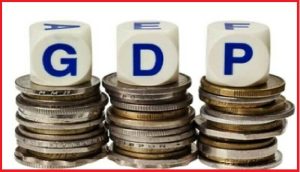02-03-2024
Bureau Report + Agencies
MUMBAI: India’s third-quarter gross domestic product (GDP), which rose by a stronger-than-expected 8.4% compared to a year ago, may be overstating growth, economists said, pointing to a more modest increase in gross value added in the economy.
 Alongside GDP, the government’s statistical office releases data for gross value added (GVA), which is a measure of total value of goods and services produced in the economy.
Alongside GDP, the government’s statistical office releases data for gross value added (GVA), which is a measure of total value of goods and services produced in the economy.
GVA is seen as a purer measure of economic growth as the computation of GDP includes indirect taxes and excludes government subsidies.
For the third quarter, GVA grew at 6.5% compared to the 8.4% GDP growth.
“The above-8% real GDP print should be read with caution given the large gap with GVA, decline in agriculture activity and two-paced economic growth (investment far outpacing consumption), Citi economist Samiran Chakraborty said in a note on Thursday.
The gap is likely explained by rising tax collections and a fall in government subsidies during the quarter, they said.
A top government source said on Friday that the divergence was explained by the high cost of fertilizers last year and lower cost of subsidies. They did not want to be named as they are not authorized to speak to media.
The government’s statistical office did not immediately respond to a request for comment.
 The divergence is at a 10-year high, said Neelkanth Mishra, chief economist at Axis Bank.
The divergence is at a 10-year high, said Neelkanth Mishra, chief economist at Axis Bank.
“We don’t expect divergences of similar magnitude to arise in 2024-25, said Mishra, who expects the Indian economy to grow at 6.5% in the next financial year, compared to the 7.6% for the year ending March 31, 2024.
The full-year growth projected by the statistical office also suggests that the economy will grow at 5.9% in the January-March 2024 quarter, which Citi’s Chakraborty said is conservative.
Underlying growth continues to be led by investment, which grew at 10.6% on-year in the third quarter, led by government spending and residential real estate.
Consumption lagged with just a 3.5% increase, below the broader economy.
“Although a pickup in private consumption was anticipated, owing to the festive season buoyancy that proxy indicators had pointed towards, the extent of upside was underwhelming for sure,” said Yuvika Singhal, an economist at QuantEco Research.
 Pressmediaofindia
Pressmediaofindia




